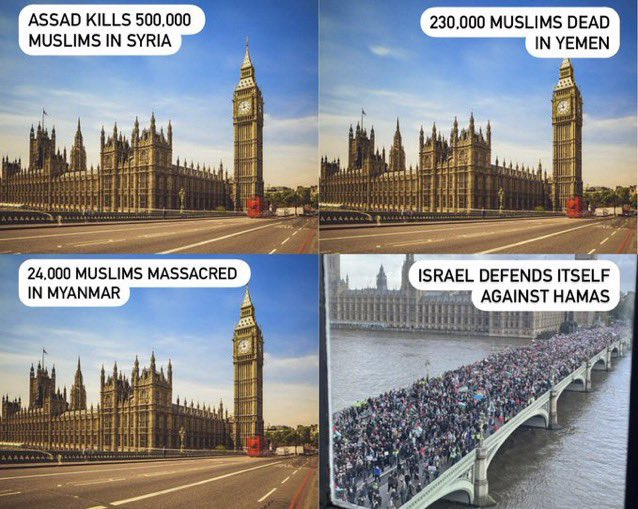A divide between Israel and the United States, its closest ally, burst into the open on Tuesday as President Joe Biden warned that Israeli leaders were losing international support for their war in the Gaza Strip and Prime Minister Benjamin Netanyahu rejected out of hand the American vision for a postwar Middle East.
U.S. President Joe Biden meets with Israeli Prime Minister Benjamin Netanyahu and the Israeli war cabinet, as he visits Israel amid the ongoing conflict between Israel and Hamas, in Tel Aviv, Israel.
With civilians in Gaza being killed at a historic rate in the Israel assault, Biden warned in an address in Washington that the international community was turning against the Israeli government.
“They’re starting to lose that support,” Biden said, arguing that Netanyahu needed to make changes to his government, the most far right in Israel’s history.

Until now, the United States has backed Israel both in action and in rhetoric — supporting the assault on Gaza, fending off calls for a cease-fire at the United Nations and authorizing the sale of thousands of tank shells to the Israelis.
But that staunch backing appeared to soften on Tuesday. Biden’s comments represented the sharpest break to date in the language the United States has used regarding Israel since the war began following Hamas’ devastating attack on Israel on Oct. 7.
Netanyahu, addressing Israelis in a video before Biden spoke, ruled out any role in Gaza for the Palestinian Authority after the war ends. The United States has been pushing that option.
“There is disagreement about ‘the day after Hamas,’” Netanyahu said in a video statement posted on social media, “and I hope that we will reach agreement here, as well.”
“After the great sacrifice of our civilians and our soldiers, I will not allow the entry into Gaza of those who educate for terrorism, support terrorism and finance terrorism,” Netanyahu said. “Gaza will be neither Hamastan nor Fatahstan.” Fatah is the political faction, a rival to Hamas, that controls the Palestinian Authority, which was ousted from Gaza in 2007 but still administers parts of the Israeli-occupied West Bank.
Israel began its assault on Gaza after Hamas-led militants launched devastating terrorist attacks on Israel from the enclave on Oct. 7, killing an estimated 1,200 people.
In the air and ground assault that has followed, more than 15,000 Palestinians have been reported killed, and the Israeli government has been facing growing condemnation from around the world over the asymmetry of the death toll.
Until Tuesday, U.S. officials had been the exception, which Netanyahu appeared to be noting in his address.
“I greatly appreciate the American support for destroying Hamas and returning our hostages,” Netanyahu said. “Following an intensive dialogue with President Biden and his team, we received full backing for the ground incursion and blocking the international pressure to stop the war.”
New Jersey Arab Americans go on strike over Gaza: ‘The administration isn’t listening’
A general strike called after the US blocked a UN resolution calling for a permanent ceasefire in Gaza took hold across New Jersey’s Arab American communities on Monday, in the latest expression of opposition to Israel’s devastating military offensive in the Palestinian territory.
Along Palestine Way in the city of Paterson, dozens of business owners, community leaders and families with young children, swathed in keffiyeh scarves against the cold, heeded the call from Palestinian leaders to show, in symbolic, political and economic terms, deepening anger and distress about an Israeli military operation that began after a Hamas cross-border attack on 7 October.
“We hope it sends a message that Muslims are unified, the public is unified and we’re all on the same page, and that we’re willing to pause our business to make our voices heard,” said Dr Jabeen Ahmed, co-owner of the local Sheefa Pharmacy.
Ahmed described a range of feelings sparked by the images coming out of Gaza and knowledge that hundreds of Palestinians are being killed and injured in the bombardment daily. Her ex-husband, Amjad Abukwaik, counted 65 members of his family and extended family who had been killed.
“There is a vast array of feelings – anger, frustration, sadness, desperation and feelings of guilt at the privilege of having meals and access to healthcare while people are starving and talking about how their children had died from starvation,” Ahmed said. “As a mother and a humanitarian, it’s so painful to witness.”
Diab Mustafa, chairman of the Palestinian American Community Center in Clifton, a suburb of Paterson, said the general strike was focused on bringing awareness to what was happening after the US vetoed a resolution on Friday in the UN security council, backed by 90 member states, for an “immediate humanitarian ceasefire”.
Hamas attacked southern Israel on 7 October, killing 1,200 people, mostly civilians, after which Israel retaliated in a campaign that has killed more than 18,000 people, mostly civilians and many of them children, in Gaza.
“As Americans, and especially as Muslims, we need to speak up – and as we believe that most American people are asking for a ceasefire,” Mustafa said. “We need to put an end to this killing and to find a political solution that gives the Palestinian people their rights, their independence, their rights of self-determination. We feel that the administration is not listening to us and it’s not listening to the people on the streets.”
Mustafa acknowledged it had become difficult to protest against Israel’s action in Gaza without being labelled antisemitic. “Some people will call this antisemitic, but what our community is doing has nothing to do with antisemitism. In fact, the Jewish community has been more vocal in calling for a ceasefire than we have.”
As Monday’s general strike took effect in New Jersey, it was already in effect across the West Bank, including in East Jerusalem, and the Lebanese government also announced that it would shut down all government offices and institutions.
Abukwaik, co-owner of the Sheefa Pharmacy on Palestine Way, told a crowd that the situation in Gaza was affecting him and many others in a profoundly personal way. “It’s with heavy hearts that we make this statement knowing that the pain and suffering is far and beyond our own personal tragedy. We make this small gesture of solidarity with those who have been killed and continue to die. This is not a political statement we’re making today, it’s a human one, because we believe in the power of compassion and empathy that we all share.”
But politics is never far beneath the surface of this distress.
Raed Odeh, a barbershop owner and the deputy mayor of Paterson, said the message of the strike was to demand a ceasefire to save the Palestinian civilians. “We have tried hard, as Americans, as Muslims, as Arab Americans, as Palestinians, to send this message,” Odeh said. “Elections are coming soon, in 11 months, and with the vote between Democrats and Republicans so close, I think our voice will be heard.”
He added: “If we don’t hear from you, you will hear from us.”


